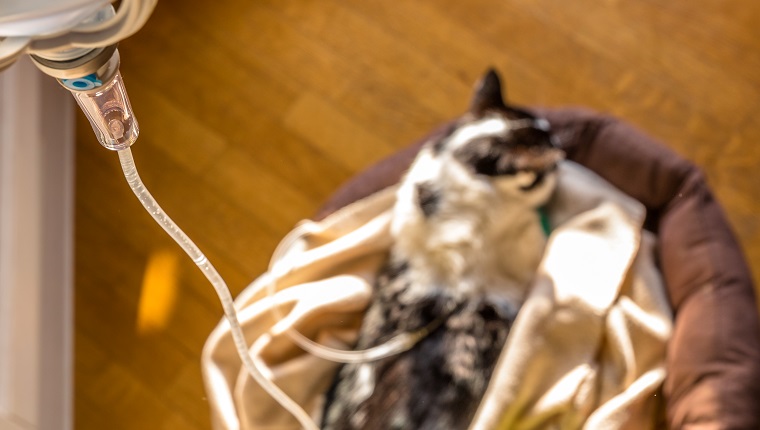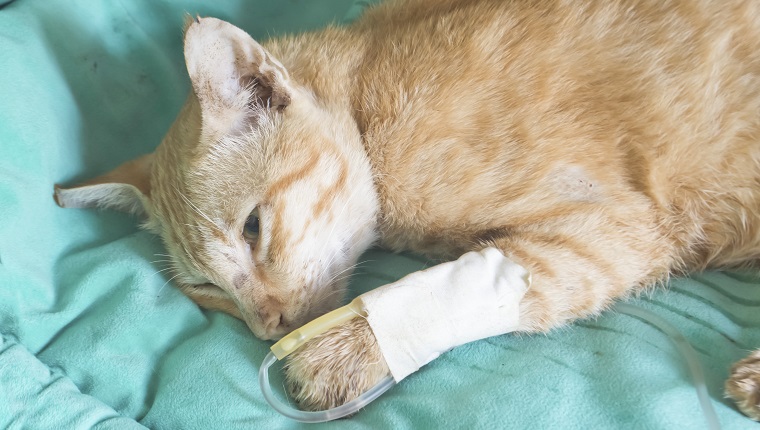Kidney failure in cats is a condition that, if left untreated, can lead to other serious health issues. Cats can either suffer from acute or chronic kidney failure, with the latter having no cure.
Older cats and kittens alike can suffer from this condition.
If you see signs of kidney failure in your cat, then you should consult your veterinarian right away so they can treat it. Here’s what you should know about kidney failure in cats.
Symptoms Of Kidney Failure In Cats
There are a number of symptoms of kidney failure in cats, but the most common and obvious ones involve both urinating more and drinking more water. It’s always important to consult your vet for a correct diagnosis.
Here are some of the symptoms that might appear in cats who suffer from kidney failure:
- Urinating frequently (including outside of the litter box)
- Drinking more water than usual
- Vomiting
- Diarrhea
- Weight loss
- Lack of appetite
- A tongue that turns a brown color and bad breath
- Seeming weaker and more withdrawn than usual
Causes Of Kidney Failure In Cats

Acute kidney failure in cats can often be the result of poisoning. This sometimes happens when a cat eats a plant that’s poisonous to them.
Some other common causes include:
- Overheating and becoming dehydrated, especially during summer
- Experiencing trauma
- Infected kidneys
- Blockages affecting blood flow around the kidneys
When it comes to chronic kidney failure in cats, this condition is often a consequence of long-term kidney blockages and infections. High blood pressure is also cited as a cause.
Treatments For Kidney Failure In Cats
When attempting to identify a case of kidney failure, urine and blood tests are key. In some cases, vets can also order X-rays or biopsies.
Treatment will depend on the individual case circumstances. Sometimes, vets suggest surgery to remove any blockages that might affect the kidneys. They may also consider putting your cat on a IV drip.
Your vet might recommend changing your cat’s regular diet to one based around higher levels of omega-3 fatty acids and vitamin D, plus lower amounts of protein.
When looking after a cat with kidney failure, it’s also important to create a calm and stress-free home environment.
Have you cared for a cat experiencing kidney failure? What words of support do you have for anyone going through the process? Let us know in the comments section below!




